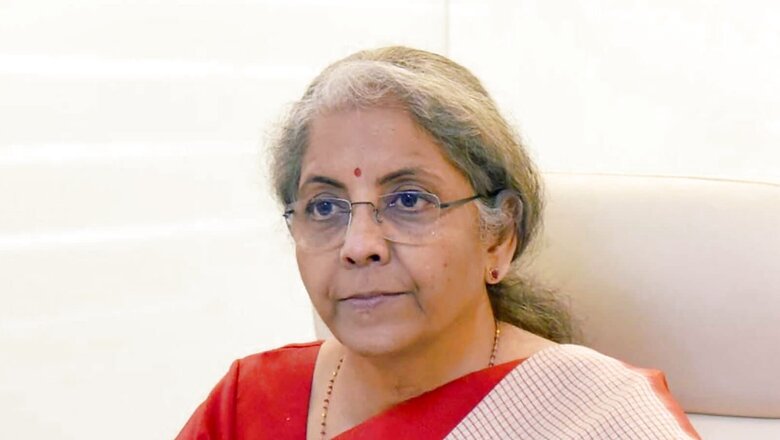
views
India will press for collective efforts to deal with the spillovers of happenings in advanced economies as well as global regulation of crypto assets to check terror funding under its G20 presidency, Finance Minister Nirmala Sitharaman said on Tuesday.
The minister outlined eight areas, including reforms in multilateral institutions and food and energy security, for discussion under its G20 presidency which will begin from December 1.
India will take over the presidency of G20, which is a grouping of 20 developed and developing nations, from Indonesia.
India is taking over the presidency at a crucial juncture when the world is facing multiple headwinds on account of the Russia-Ukraine war, increasing crude oil prices, rising interest rates and slowdown in global demand.
“We are probably at a very comfortable stage in the sense of comparing with other economies, our macroeconomic fundamentals are fine,” Sitharaman said, adding that emerging markets always face the collateral and unintended spillovers of happenings in the developed countries.
She said at the G20 forum India is constantly maintaining its position and voicing the concerns of emerging markets and low- and middle-income countries.
“Particularly at a time when we are also facing the collateral spillovers which are unintended … How much countries like India or in the middle or low income bracket or emerging markets can bear the brunt of spillovers? Can you at all be ready for unpredictable spillovers, and how much can you be ready? “Therefore, (discussions on) spillovers will be (a) priority,” Sitharaman said at ICRIER’s G20 conference.
Warning of a recession in advanced economies, IMF last month lowered global growth projections to 3.2 per cent for 2022 and 2.9 per cent for 2023.
The World Trade Organisation (WTO) expects global trade growth to slow down to 1 per cent in 2023, from 3.5 per cent this year, due to global uncertainties.
To a question on whether sanctions imposed by the West on Russia have backfired, Sitharaman said they could be a part of ‘spillover’ discussions at the G20.
“That is what I thought I will be covering as a subject under the spillovers. So certainly, members will have to talk about it. Actions taken at the early stages of the Russia-Ukraine war, whether it is sanctions on payments through the SWIFT, or subsequently on fuel trading … You also have probabilities of newer such things coming in. So these are spillovers of decisions. Those will have to be definitely discussed,” Sitharaman said.
Referring to issues associated with crypto assets, the finance minister said there is a need for global regulation to prevent their misuse for terror funding and money laundering.
“…how crypto assets can be regulated with all countries on board because no one single country can succeed individually, being in a silo and trying to regulate the crypto assets,” she said.
The minister said concerted action is required so that the money trail is established and unregulated crypto assets are not used for drug funding, terror funding or gaming the system.
“That regulation cannot be successful if any one country does it. We have not come out with any plans as yet. So we need to have the members of G20 come on board to see what best needs to be done,” she added.
Various international bodies are working on regulations for crypto assets and those have to brought on the table for a meaningful discussion at the G20, the minister said.
Sitharaman further said G20 member countries have come together and worked out a consensus on the issue of international taxation and hoped that under India’s presidency, consensus would emerge on “few other issues which are very critically important”.
The eight areas outlined by the minister for discussion at the G20 forum are — financing Sustainable Development Goals (SDGs); reforms in multilateral financing institutions; debt distress faced by some countries; urban infrastructure; digital achievement of India; international taxation; regulation of crypto assets; and food and energy security.
She said there was a need for ‘reigniting’ the debate on meeting Sustainable Development Goals (SDGs) by 2030 for which countries are raising debts to finance their development.
“Can SDGs be reached by financing ourselves like that? That we end up not developing our resources or assets but more indebted and that kind of unsustainable way of attaining your development goals is something on which all of us will have to apply our mind,” Sitharaman said.
With regard to reforms in multilateral funding institutions, she said they should work towards leveraging their endowments optimally.
“We have to understand how multilateral institutions, international financing institutions are going to be a better reformed institutions, going to serve with greater vigour, have they become fatigued out, do they have enough newer thoughts, are they looking at modern ways of leveraging their funds..? Multilateral financing institutions will be a matter of debate…,” she said.
Read all the Latest India News here




















Comments
0 comment